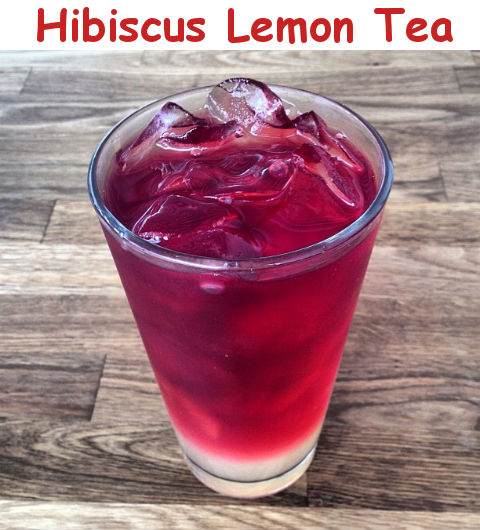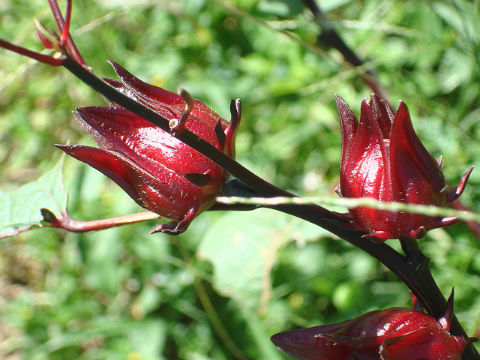Hibiscus Tea (Sorrel drink) Health Benefits

Article Contents:
Hibiscus tea is also referred to as the sorrel drink and a whole lot of other names. But regardless of how it is called, it offers the same goodness that can only be obtained from a supplement or a food item that is referred to as a super food. As a tea, hibiscus can be taken either hot or cold, depending on the person’s preference. Such tea is derived from the magenta sepals of the hibiscus flower, which is rather common all over the world. Drinking hibiscus tea regularly produces a range of health benefits to its user.
The Different Names of Hibiscus Plant
The hibiscus plant is widely popular in the European region. However, it may be called by a different name elsewhere. In Australia, the hibiscus flower is referred to as the Rosella. In most of the Latin American region, hibiscus flower is called as Flor de Jamaica. In India, it is the Arhul ka phool. The same red flower that can be made into a tea is called Karkade in countries such as Sudan, Egypt, and Levant. In Iraq and Iran, it is the Chai Kujarat and the Chai Torsh, respectively. In the Philippines, it is more popularly referred to as the gumamela plant. In the US and the rest of the Caribbean, it is simply called sorrel or alternately, red sorrel.
The Different Uses of Hibiscus
Because of the high medicinal nature of the Hibiscus plant, it has found many uses aside from being concocted into a zesty tea. In some countries, hibiscus is being used as a cooking ingredient. In many others, it is a popular first aid remedy for boils, bumps, cuts, and wounds. It is an effective aphrodisiac in some regions while being a popular ingredient for making perfumes in most. In several tropical countries, hibiscus is used to manufacture twines, cords, and sackcloths.
Hibiscus proves to be a wonder plant because of its many other uses. With its applications in both medical and industrial fields, it is quite clear to see that this herbal plant has definitely more to it than what meets the eye. And going back in time, Hibiscus is referred to as an ancient drink that has tons of undeniable health benefits. Taking hibiscus tea back during those times is a common practice as ancient people believe that doing so can leave them with a stronger and more capable body that is also free from illnesses.
Health Benefits of Hibiscus Tea or Sorrel Drink
As a very potent health supplement, hibiscus tea or sorrel drink can provide the different benefits to its user. Many health experts recommend drinking this tea regularly.
1. Control high cholesterol levels
As little as one gram of hibiscus tea taken daily is enough to lower down both the LDL and HDL levels of an individual. With regular intake, a person’s blood cholesterol level will become normal.
2. Manage high blood pressure
Drinking hibiscus tea thrice daily can lower a person’s blood pressure. However, if the user stops taking the tea, the beneficial effect will eventually wear off. To keep blood pressure at normal, continual intake of the sorrel drink is recommended. For more information about blood pressure, see this blood pressure chart.
3. High in Vitamin C content
Studies have shown that the Vitamin C content of hibiscus tea is enough to supply this nutrient’s recommended daily allowance. Being anti-scorbutic, hibiscus tea can also improve the body’s immune system. It can help fight off colds, coughs, and common fever.
4. Enhances the functions of the liver
There are many beneficial compounds present in hibiscus flower that can produce the choleretic effect, which is what allows the liver to function better.

5. Relieves constipation
The red flowers of a hibiscus plant can stimulate intestinal peristalsis. In simple explanation, it can relieve the problems and symptoms associated with constipation.
6. Rich in anti-oxidants
Sorrel drink has high antioxidants content, more particularly flavonoids, anthocyanins, and polyphenolics. All of these are beneficial to the health of the body cells. It is also believed that hibiscus tea can help delay the natural process of aging.
7. Has antibacterial properties
Hibiscus tea can also be taken as a treatment for menstruation problems, venereal diseases, cystitis, feverish illnesses, and bladder infections. Taking it regularly keeps the body bacteria-free.
8. A known diuretic
Individuals who have circulatory problems can take hibiscus tea to improve blood circulation. Regular intake keeps the body systems and organs healthy.
Hibiscus Tea or Sorrel Drink Contradictions
Taking hibiscus tea or sorrel drink regularly is believed to be safe and healthy. However, some individuals may experience a few negative side effects when taking it as a health supplement. The contradictions of this red tea are:
1. Possible interaction with some drugs
Individuals who are taking drugs such as Acetaminophen or Tylenol may find them to be less effective than usual. Studies suggest that hibiscus tea causes the body to get rid of this particular drug faster than necessary.
2. Dizziness, fainting, or lethargy
These side effects are caused by the blood pressuring-lowering capability of hibiscus tea. People who are prone to developing low blood pressure are advised against drinking hibiscus tea on a regular basis.
3. Not for pregnant mothers
It is believed that hibiscus tea may trigger menstruation because of its diuretic and estrogen-inducing properties. It can be the cause of miscarriage when taken regularly during pregnancy. In the same way, those who are currently taking hormone replacement therapies and birth control pills may not take it.
"Test yourselves if you are in the faith; examine yourselves!" - Bibel, 2 Cor. 13:5
10 Questions to Examine and Test Your Faith in God
Test Yourself Now

Julia
September 2, 2013 @ 5:02 am
Hibiscus tea is a famous drink of our family. I remember, when I was a child, we used to drink hibiscus tea, my mom called it “Roselle Tea” and I liked drinking it so much.